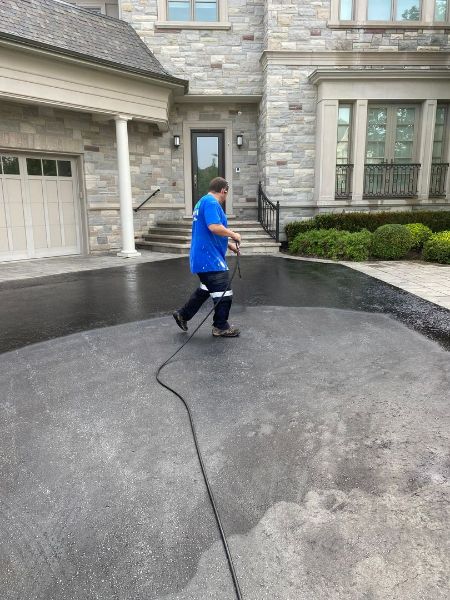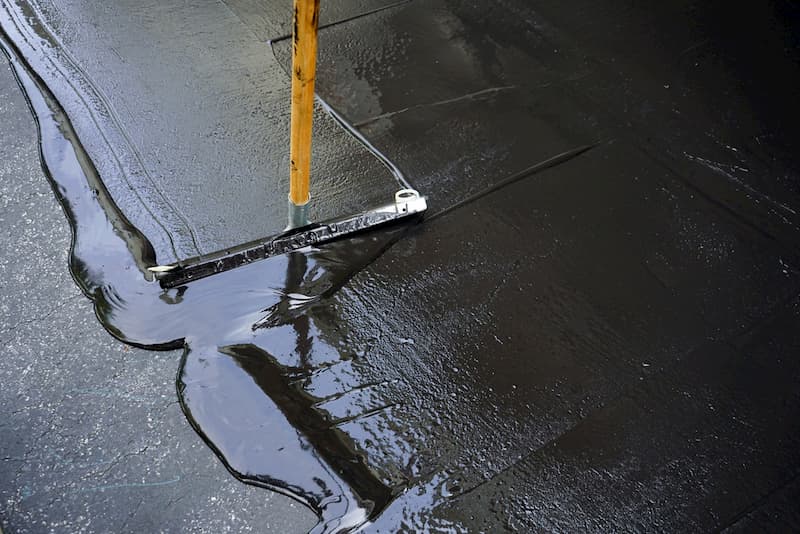Boost Commercial Appeal: Warm Mix Asphalt Sealing for Angled Parking Lots
Boost Commercial Appeal: Warm Mix Asphalt Sealing for Angled Parking Lots
Blog Article
Warm Mix Asphalt: A Sustainable Service for Sidewalk
Hot Mix Asphalt (HMA) has emerged as a leading sustainable choice for pavement solutions, providing a myriad of ingenious innovations and environmental benefits. Its ability to recycle materials and reduce power usage provides a compelling case for its fostering in roadway building and construction tasks. The lasting performance and resilience of HMA make it a preferred option for infrastructure development. As the need for environmentally friendly construction practices grows, exploring the subtleties of HMA's sustainability can provide important insights right into the future of pavement solutions.
Environmental Advantages of Hot Mix Asphalt

Furthermore, Warm Mix Asphalt aids to minimize city warm island impacts. Its dark color absorbs sunshine, decreasing the amount of heat reflected back right into the ambience compared to lighter-colored sidewalks. This can reduce ambient temperatures in urban locations, reducing the demand for air conditioning and ultimately minimizing energy usage.
Furthermore, Hot Mix Asphalt adds to boosted stormwater management. Its permeable nature allows water to charge and penetrate the sidewalk groundwater products, reducing runoff and the danger of flooding. These environmental benefits make Warm Mix Asphalt a lasting selection for leading freeways and roadways.
Power Performance in HMA Manufacturing
Is power effectiveness a critical aspect in the production of Hot Mix Asphalt (HMA)? Power plays a significant function in the manufacturing of HMA, affecting both price and environmental sustainability. One key facet of power efficiency in HMA production is the usage of warm mix asphalt (WMA) technologies.
Furthermore, advancements in plant innovations have actually led to more energy-efficient HMA manufacturing processes. By maximizing energy use in HMA manufacturing, the sector can reduce its carbon impact while keeping top notch pavement products.
Recyclability of Hot Mix Asphalt
The recyclability of Hot Mix Asphalt (HMA) is a crucial aspect of its sustainability and lasting environmental effect. HMA is just one of the most recycled products in the USA, with over 100 million loads of recovered asphalt pavement (RAP) being reused every year in brand-new pavement construction. Recycling HMA provides numerous ecological advantages, such as lowering the demand for virgin products, decreasing power consumption throughout manufacturing, and reducing the amount of waste sent out to land fills.
The procedure of reusing HMA involves crushing the existing pavement, crushing it into smaller sized pieces, and mixing it with brand-new accumulation and asphalt binder to create a recycled mix. This recycled mix can often execute as well as or also much better than conventional HMA, while requiring fewer raw products and producing reduced greenhouse gas exhausts. By incorporating RAP right into brand-new sidewalk projects, roadway agencies can save natural sources, reduce expenses, and minimize the environmental footprint of road building and maintenance tasks. In general, the recyclability of HMA plays a significant role in advertising lasting techniques within the sidewalk sector.

Long-Term Efficiency of HMA
Asphalt pavements show resilience and strength over a prolonged period, reflecting the lasting efficiency of Warm Mix Asphalt (HMA) Furthermore, improvements in HMA innovation, such as the use of polymer-modified binders and cozy mix asphalt, have further enhanced the toughness and long life of HMA sidewalks. By prioritizing top quality building and construction and maintenance techniques, HMA proceeds to confirm itself as a affordable and sustainable service for long-lasting sidewalk infrastructure.

HMA: Durability and Sustainability
Demonstrating both toughness More Help and sustainability, Warm Mix Asphalt (HMA) has become a cornerstone in the building of lasting pavement frameworks - regrading. HMA's toughness originates from its ability to withstand heavy lots, harsh weather conditions, and high website traffic quantities, making it a reputable selection for roads, highways, and airport terminal runways. The composition of HMA, which typically includes aggregates, binder, and filler, plays a vital role in improving its long life and resistance to tear and use
Moreover, HMA's sustainability depends on its recyclability and energy-efficient production process. The ability to recycle reclaimed asphalt pavement (RAP) in new HMA mixes minimizes the need for virgin materials and reduces the environmental influence of sidewalk construction and maintenance. In addition, the energy effectiveness of generating HMA depends on its lower blending temperature levels compared to other pavement products, causing reduced power usage and greenhouse gas emissions.
Verdict
Finally, warm mix asphalt (HMA) supplies see post a sustainable solution for sidewalk with its eco-friendly features. HMA's recyclability, power effectiveness in manufacturing, and lasting toughness make it an environment-friendly selection for road construction. By preserving natural deposits, lowering waste, and lowering greenhouse gas discharges, HMA plays a vital role in promoting sustainability in infrastructure development. Its capacity to mitigate city warm island site link impacts even more highlights its value in creating ecologically conscious and resistant sidewalk systems.
HMA is one of the most recycled materials in the United States, with over 100 million lots of redeemed asphalt sidewalk (RAP) being reused yearly in new pavement construction.The procedure of recycling HMA entails milling the existing sidewalk, crushing it into smaller sized items, and blending it with new accumulation and asphalt binder to create a recycled mix.Asphalt pavements show resilience and resilience over a prolonged period, showing the long-lasting performance of Hot Mix Asphalt (HMA) Additionally, developments in HMA innovation, such as the usage of polymer-modified binders and warm mix asphalt, have actually better improved the resilience and longevity of HMA sidewalks. The capability to recycle recovered asphalt pavement (RAP) in new HMA blends reduces the demand for virgin materials and lessens the environmental impact of sidewalk construction and maintenance.
Report this page